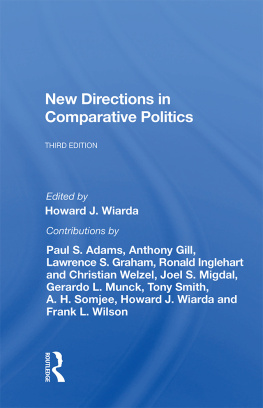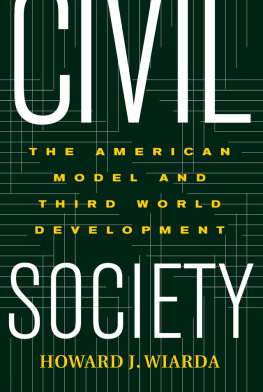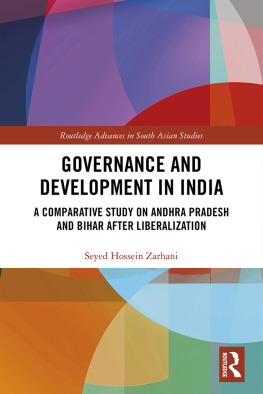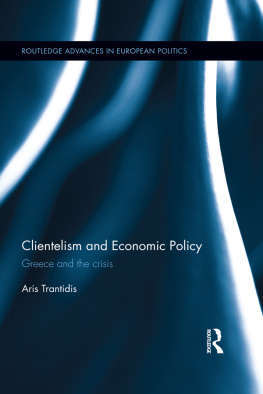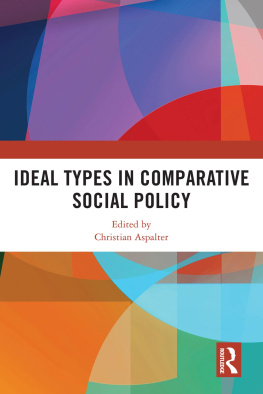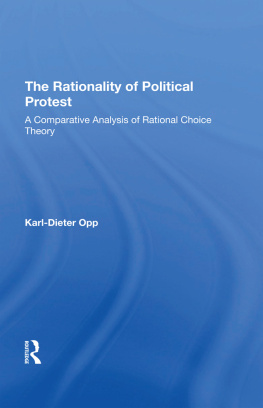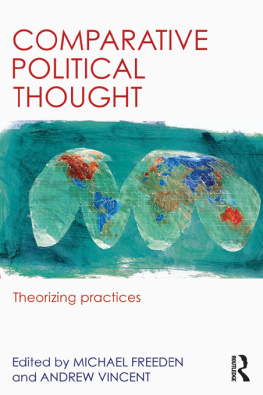First published 2002, 1991, 1985 by Westview Press
Published 2018 by Routledge
52 Vanderbilt Avenue, New York, NY 10017
2 Park Square, Milton Park, Abingdon, Oxon OX14 4RN
Routledge is an imprint of the Taylor & Francis Group, an informa business
Copyright 2002, 1991, 1985 Taylor & Francis
All rights reserved. No part of this book may be reprinted or reproduced or utilised in any form or by any electronic, mechanical, or other means, now known or hereafter invented, including phtocopying and recording, or in any information storage or retrieval system, without permission in writing from the publishers.
Notice:
Product or corporate names may be trademarks or registered trademarks, and are used only for identification and explanation without intent to infringe.
A Cataloging-in-Publication Data record is available at the Library of Congress
ISBN 13: 978-0-367-00736-2 (hbk)
Between the time of completing his chapter and the publication of this book, Frank L. Wilson passed away. Lee Wilson was a major scholar in the comparative politics field; we lament his passing, extend our sympathy to those close to him, and dedicate this book to his memory.
Since the last edition of this book appeared, in 1991, a great deal has happened in the worldand in the field of comparative politics. Among the most important developments are the collapse of the Soviet Union and other Marxist-Leninist regimes in Eastern Europe, the continued triumph and consolidation of democracy in numerous parts of the world, and the powerful impact of globalization and interdependence on all nations.
The collapse of the Soviet Union, the fall of the Berlin Wall, and the revolutions that overthrew communism in Eastern Europe not only all but eliminated Marxism-Leninism as one of the main alternative systems of politics, society, and economics in the world but they also had broader implications. For one thing, these events rendered irrelevant the earlier comparative politics typology that divided the globe's political systems into a First World of developed capitalist and democratic countries, a Second World of developed communist countries, and a Third World of developing countries. By now, the Second World has all but disappeared, and that means the Third World category, always a diverse collection of very different countries, is not very useful either, as formerly Third World countries like South Korea and Taiwan achieved miracle economic growth rates and joined the First World while other areas remained mired in poverty. Another implication of the collapse of the Soviet Union and the communist world is that numerous left-wing political parties and revolutionary movements throughout the world have converted themselves into political parties, shed their revolutionary ideologies, and joined the democratic process.
The continued spread and strengthening of democracy is the second major trend identified. The most recent or "third wave" of democracy actually began in Southern Europe (Portugal, Greece, Spain) in the mid-1970s, then spread to Latin America and East Asia, emerged unevenly in Russia and Eastern Europe, and spread haltingly into the Middle East and Sub-Saharan Africa. Scholars are no longer talking just about the transition to democracy, analyzed in earlier editions, but now of its consolidation and institutionalization. While democracy has apparently triumphed worldwide and enjoys near-universal legitimacy, the topic remains interesting because (1) democracy can appear in many different forms; (2) many of the new democracies are still weak and only incompletely institutionalized; and (3) in quite a number of countries we are also seeing, usually because of weak and ineffective social and economic development programs, considerable disillusionment with democracy and efforts to reverse, undermine, or even overthrow it. With the collapse of both the authoritarian and the Marxist-Leninist alternatives, nevertheless, and the global triumph of the democratic aspiration, it may be that the great "systems arguments" in comparative politics are mainly over.
The third major theme identified here is globalization, which may well be the most important force of the early twenty-first century. Globalization refers to the increasing spread of a single set of ideas and institutions throughout the globe and is manifested in a variety of ways: cultural, through the spread of global television, movies, VCRs, and the Internet; social, in the form of global patterns of behavior, values, and moresoften themselves gleaned from television; behavioral, in the desire on a global scale for a freer lifestyle as well as modern consumer goods; political , in the popular insistence on democracy (see above), human rights, and good public policies and programs from their governments; and economic, in the near-instantaneous flow of capital and investment around the globe. Globalization carries controversial implications and has stimulated protests in the streets of Seattle, Washington, D.C., and Prague, among other places, but no one doubts that it is important, probably irreversible; requires accommodation in one form or another on the part of all political systems; and, therefore, carries major implications for world politics and our understanding of it.
All these are critical and even earthshaking trends; nevertheless, we remain convinced that the field of comparative politics and the approaches used in earlier editions of this book are still relevant, useful, and of fundamental importance in comprehending and understanding, comparatively, the world's political systems. Of course, we need to remain flexible and to adjust to these new trends, including globalization, new challenges to the nation-state and even to sovereignty, and the increasing importance of such agencies of multinational governance as the European Union, the World Trade Organization, and the North American Free Trade Area (NAFTA). Hence, our approach is to adjust, be flexible, and to take into account and accommodate to the new changes. As with any social science field, we need to be prepared for new facts, theories, and understandings that force us to adjust and rethink comparative politicsthis, to our mind, what any scientific field of inquiry has to be aboutbut we see no reason at this stage to abandon wholesale our earlier approaches. Quite the contrary; we see comparative politics and its approach and methodology as useful, relevant, and even strengthened by recent world developments.


